Poison Ivy: Spring Flowers
“Poison ivy” and “flowers” are words that don’t seem to fit in the same sentence. Yes. Poison ivy has flowers. Dainty and delicate, lovely flowers that, yes, will give you a lovely rash if you’re allergic to urushiol, the irritating chemical found in almost all parts of the poison ivy plant. Poison ivy flowers are rich in nectar and very attractive to bees. Fortunately for honey-lovers, there’s no urushiol in poison ivy nectar or pollen, so eating poison ivy honey is not a problem. In fact, if you like honey, you’ve probably eaten poison ivy nectar many times....
Read MoreBranching Out
The only thing more beautiful than a tree in full leaf is a tree with bare branches. The branching pattern of this tree—of any tree—is beautiful, complex, and anything but accidental. There’s a reason for every twist and turn in every smallest twig. It’s all driven by the search for sunlight. Each leaf has to maximize the amount of sun it receives in order to make food for the tree, and therefore the tree has to spread out as much as possible so the leaves don’t shade each other. But spread too wide and the branches will bend and break. The tree also has to grow upwards, to get above any...
Read MorePoison Ivy: Hairy Vine, A Danger Sign
How can you tell if it’s poison ivy twined around your backyard tree, when the leaflets three are long gone? Look for the hairy vine.
Read MoreThe grass is always greener…
I can’t decide if these geraniums are yearning to be free, or if they’re appreciating their tropical environment (they’re on a nice cozy windowsill next to the pellet stove). I think it’s the latter, and they’re shamelessly flaunting their pink blossoms to their frozen cousins outdoors. Geraniums are originally from South Africa, so they like it warm but not too torrid. They were imported to England in the 1600s by a botanist named John Tradescant, who was gardener to the rich and elegant Duke of Buckingham, famed for his fabulous mansions and gardens...
Read MoreGoldenrod: Fill Up the Feeders
Big winter storm! For once the weather hysterics were right, and we got a lot of snow, even more than they threatened. A winter wonderland which is great for kids (tough luck it’s on a Sunday, guys, could have been a snow day…). Great for skiiers. Great, in fact, for all snow lovers, including mice, red squirrels and meadow voles who can tunnel safely beneath the drifts and avoid predators. But deep snow is tough on some types of wildlife. If the seeds are all hidden underneath a blanket of white, what’s a bird to do? Looks like it’s shaping up to be a long cold...
Read More
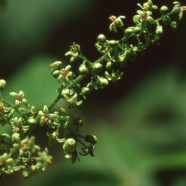
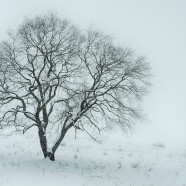
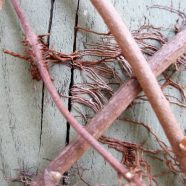
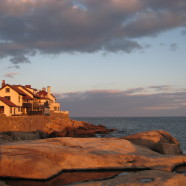
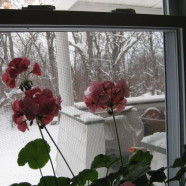
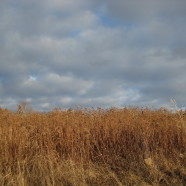




Recent Comments